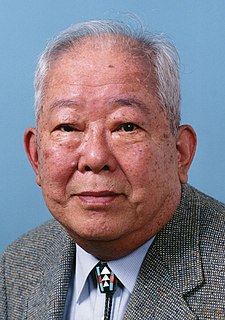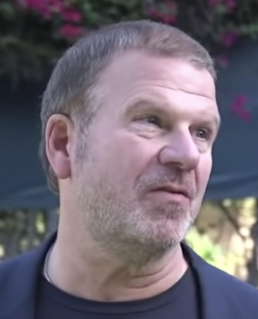A Quote by Frank Herbert
The gravest error a thinking person can make is to believe that one particular version of history is absolute fact. History is recorded by a series of observers, none of whom is impartial. The facts are distorted by sheer passage of time and thousands of years of humanity's dark ages, deliberate misrepresentations by religious sects, and the inevitable corruption that comes from an accumulation of careless mistakes. The wise person, then, views history as a set of lessons to be learned, choices and ramifications to be considered and discussed, and mistakes that should never again be made.
Quote Topics
Absolute
Accumulation
Again
Ages
Believe
Careless
Choices
Considered
Corruption
Dark
Dark Ages
Deliberate
Discussed
Distorted
Error
Fact
Facts
History
Humanity
Impartial
Inevitable
Learned
Lessons
Lessons To Be Learned
Made
Make
Mistakes
Never
None
Observers
Particular
Passage
Passage Of Time
Person
Ramifications
Recorded
Religious
Religious Sects
Sects
Series
Set
Sheer
Should
Then
Thinking
Thinking Person
Thousands
Thousands Of Years
Time
Version
Views
Whom
Wise
Wise Person
Years
Related Quotes
There's a lot we should be able to learn from history. And yet history proves that we never do. In fact, the main lesson of history is that we never learn the lessons of history. This makes us look so stupid that few people care to read it. They'd rather not be reminded. Any good history book is mainly just a long list of mistakes, complete with names and dates. It's very embarrassing.
What are your choices? Whom are your choices for? Not just for yourself. Chose now whom you will serve, and that choice is going to affect the next generation, and the next generation, and the next. Choice never affects just one person alone. It goes on and on and the effect goes out into geography and history. You are part of history and your choices become part of history.
After school, I went to Damascus to study law and history, which I didn't really like. I didn't like history, in particular. In Syria, the regime was trying to present to us a distorted version of the past. Assad was shown as the father of history. So I decided to shift to film, which was something I had always loved as a teenager.
No doubt Carlyle has a propensity to exaggerate the heroic in history, that is, he creates you an ideal hero rather than another thing.... Yet what were history if he did not exaggerate it? How comes it that history never has to wait for facts, but for a man to write it? The ages may go on forgetting the facts never so long, he can remember two for every one forgotten. The musty records of history, like the catacombs, contain the perishable remains, but only in the breast of genius are embalmed the souls of heroes.
In 5,000 years of recorded human history... neither in the east or in the west... has any society ever defined marriage as anything other than between men and women. Not one in 5000 years of recorded human history.
That's an astounding fact and it isn't until the last 12 years or so that we have seen for the first time in recorded human history marriage defined as anything other than between men and between women.
Life and study have persuaded me of the openness of history. There is no inevitability in history. Thinking about what might have happened, what could have happened, is a necessary element in trying to understand what did happen. And if, as I believe, individual acts of decency and courage make a difference, then they need to be recorded and remembered.
What experience and history teach is this - that nations and governments have never learned anything from history, or acted on any lessons they might have drawn from it. Variant: What experience and history teach is this - that people and governments never have learned anything from history, or acted on principles deduced from it.





































